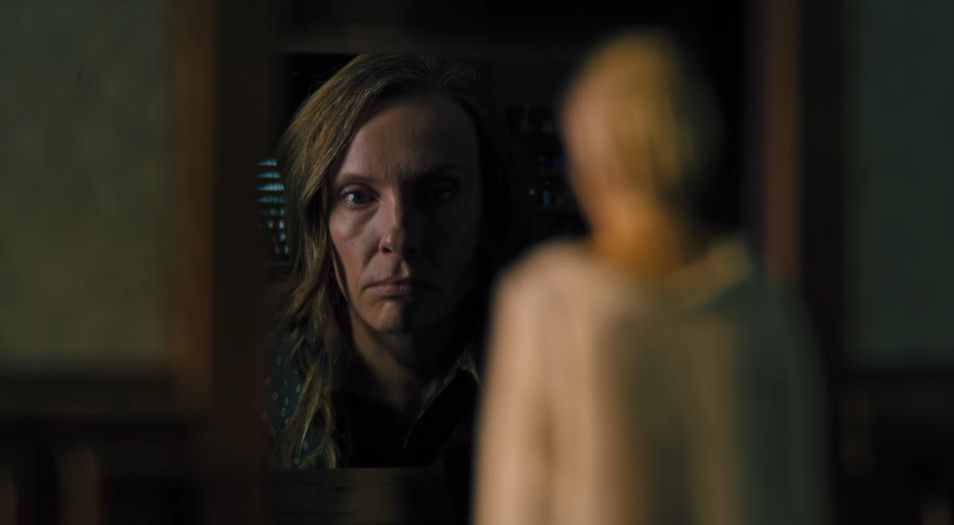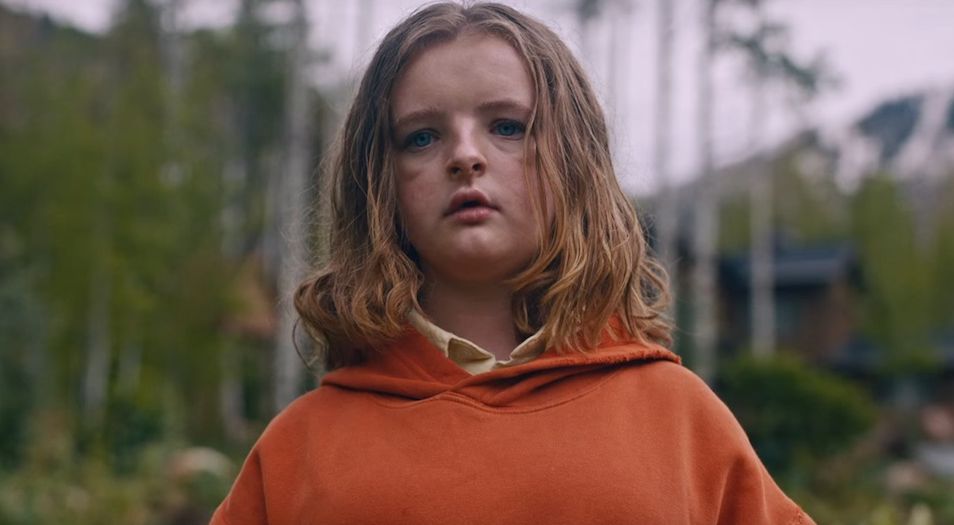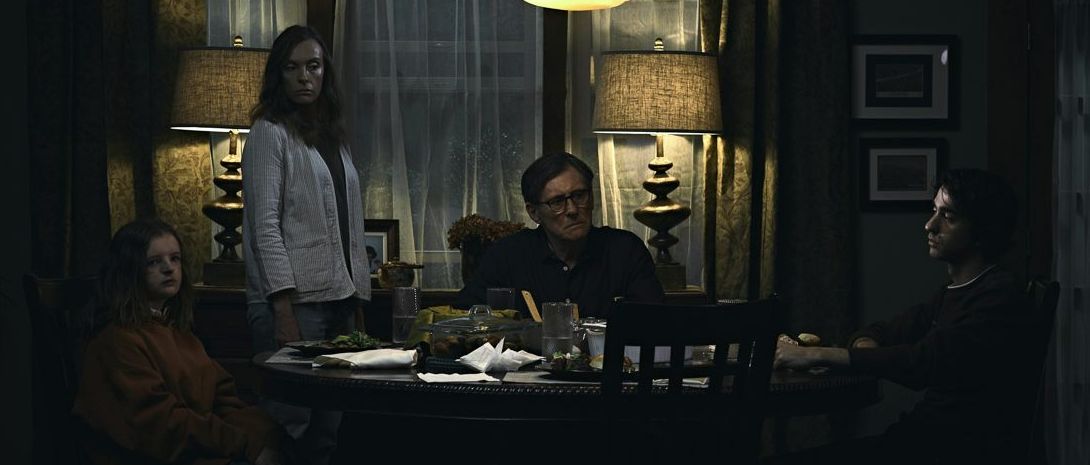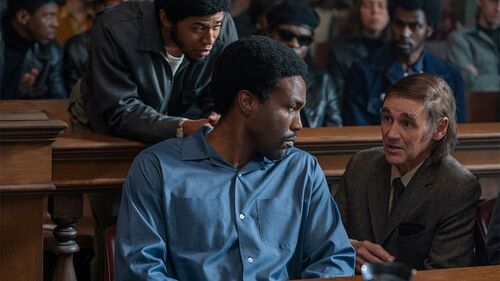
'Hereditary' Review
 When 'Hereditary' hit its peak in an unmissable moment that petrifies the soul, I was thrust through a torrid gateway to a suffocating dimension of childhood regret and trauma. If you are anything like me, chances are you were seized by palpitations and fits as an unforgiving bout PTSD took hold.
When 'Hereditary' hit its peak in an unmissable moment that petrifies the soul, I was thrust through a torrid gateway to a suffocating dimension of childhood regret and trauma. If you are anything like me, chances are you were seized by palpitations and fits as an unforgiving bout PTSD took hold.
First-time director Ari Aster oversees a film that is such a tremendous emotional drain like no other. I was leaning towards a second viewing before this write-up but decided against it. I need at least six months to fully recover from one of the most oppressive cinematic experiences of recent times.
Aster, who also serves as scribe, serves up one of the most flawless opening 45 minutes to a film. He expertly defines the psychological parameters of this domestic horror flick and effectively whips ups an ominous mood to match. There is a terrifying simplicity to the setup that made my blood churn and thought of sitting through another 80 minutes almost broke me. Then our director breaks into an elaborate juggle and fumbles to incredulous effect.
Aster opens the film with a slow pan from a window, across a workshop of sorts and then narrows onto a doll house. We creep into one of the doll house’s rooms and realise deciphering reality in this world will be far from simple. The room comes alive as Steve Graham (Gabriel Byrne) bursts in to wake his sleeping son weed-head of a son, Peter (Alex Wolff).
Their family is bereaved. Or more specifically, Annie (Toni Collette), Steve’s wife and Peter’s mom is bereaved. We are made to believe the world revolves around Annie; or at least in her head. It is her workshop of miniatures we intruded on earlier. We also learn it is her mother that has passed – something she feels quite ambivalent towards.
Annie’s eulogy at the funeral only shows us how detached she was from her mother. She was a very secretive person, she recalled – the first indicator of the elaborate juggle routine Aster will break into later. In the meantime, proceedings adopt the form of a psychological horror. There is at the very least something sinister festering in the Graham household and the easy target of our apprehension is its youngest member; Charlie (Milly Shapiro).
The scariest thing about Charlie isn’t her dead unnerving gaze or her morbid hobbies (that involves the decapitation of a bird). It’s this ghastly clicking sound she does with her tongue. It reminded me of the infamous mob hitman Richard 'The Iceman' Kuklinski, who had a similar auditory tick as his harbinger of death. Charlie’s clicking will go on to haunt this film, echoing from dark corners in times of distress.

Charlie, who was her deceased grandmother’s favorite, looks like she needs therapy. That her grandmother always wished she was a boy doesn't help much. You would think her psychiatrist father would have got the hints along the line. The only one getting some therapy is Annie who joins a support group following her bereavement and reveals a disturbing thread of mental illness in her family and learns some mediuming for dummies.
To the annoyance of some, 'Hereditary' was being held up as some form of prestige or elevated horror. Whilst such tags may be innocent attempts to differentiate it from mainstream jump scare flicks, Aster’s effort is not far off the “quiet quiet bang” fare as it enters the final act. It even begins cannibalising certain iconic horror totems to unintentionally comic effect. Now I have no qualms with that. Such beats possess their own morbid charm.
The problem is Aster overly complicates what should have been a simple chill-inducing parable about a toxic family legacy into a befuddling Satanist conspiracy. Upon reflection, it is clear Aster lays out some markers en route to his grand convoluted vision – from Annie’s eulogy at the funeral to our rummages through her mother’s old stuff. Even the opening shot has some clever parallels with film’s punctuation. But it was all needless; an unwelcome albatross wrapped around the necks of audiences after the otherworldly first half we were treated to.
Could it be that Aster’s approach mirrors the way we deal with grief; assigning some higher meaning to loss and familial tragedy especially when there is cap that needs fitting? It’s an argument I would entertain, even buy into if I manage that second viewing. Nonetheless, I never overcame the whiplash of learning Aster’s true destination.
The complaints notwithstanding, one good thing came out of Aster’s massive left turns - Alex Wolff’s performance.
A lot of buzz for Toni Collette and Millie Shapiro trailed the release of 'Hereditary' but Alex Wolff wins the movie and it's not even close. Wolff’s Peter is the lens Aster uses to magnify the visceral petrifying intensity and the crippling disbelief of 'Hereditary's' trajectory. Wolff harnesses the darkest depths of a certain older sibling angst with such understated and upsetting conviction. But in some of his most transfixing moments, Peter has this expression of resigned bewilderment, which could be read as a meta-reaction to our sharp descent into demented bedlam.

Collette, operating with a matter-of-factly weariness, has her moments and lets fly some venomous bouts of dialogue en route to a grieving meltdown that takes maternal frenzy to levels seldom seen on the big screen. Milly Shapiro has an immense presence, casting an ominous shadow over proceedings, sucking all the joy out of a room like a mutely wheezing hoover.'Hereditary' is operates from within for the most part; disturbingly harnessing the past to haunt its characters. That should have been enough for Aster. That would have been perfect for me. But there is some dissonance at play when the horrors start manifesting in the physical. It just makes for a confusing recipe.
But no matter how salty I get, 'Hereditary’s' visceral anguish can’t be denied. Like Peter, who grows to become the heart of the movie, some bewilderment will linger. I suspect Aster intended it this way. Credit where credit is due, he does the craft the entire story with painstaking rigor and, in particular, there is a deftness to the way he uses stillness and silence in the film’s stupefying inciting incident.
There are times I asked myself if this was what real trauma looked like; whether dinners in the households stricken by tragedy had the intensity of a game of Russian Roulette. Are their homes as dimly lit as the Graham household, seemingly inviting death to come and finish the job? Is there a level of loss and familial decay that fractures reality for all time? Is 'Hereditary' ultimately proposing familial separation as the logical cure to grief? These and more are questions I considered as tears stained my quivering cheeks after this film.
I can’t stress enough how needless the complications to the plot were but as an experience, they don’t come much brutal and harrowing than Aster's vision. Maybe I should be thanking Aster for the narrative discord because very few sane humans would have the capacity to absorb the version of 'Hereditary' I would have deemed perfect without slowly combusting into fiery red flames
-


